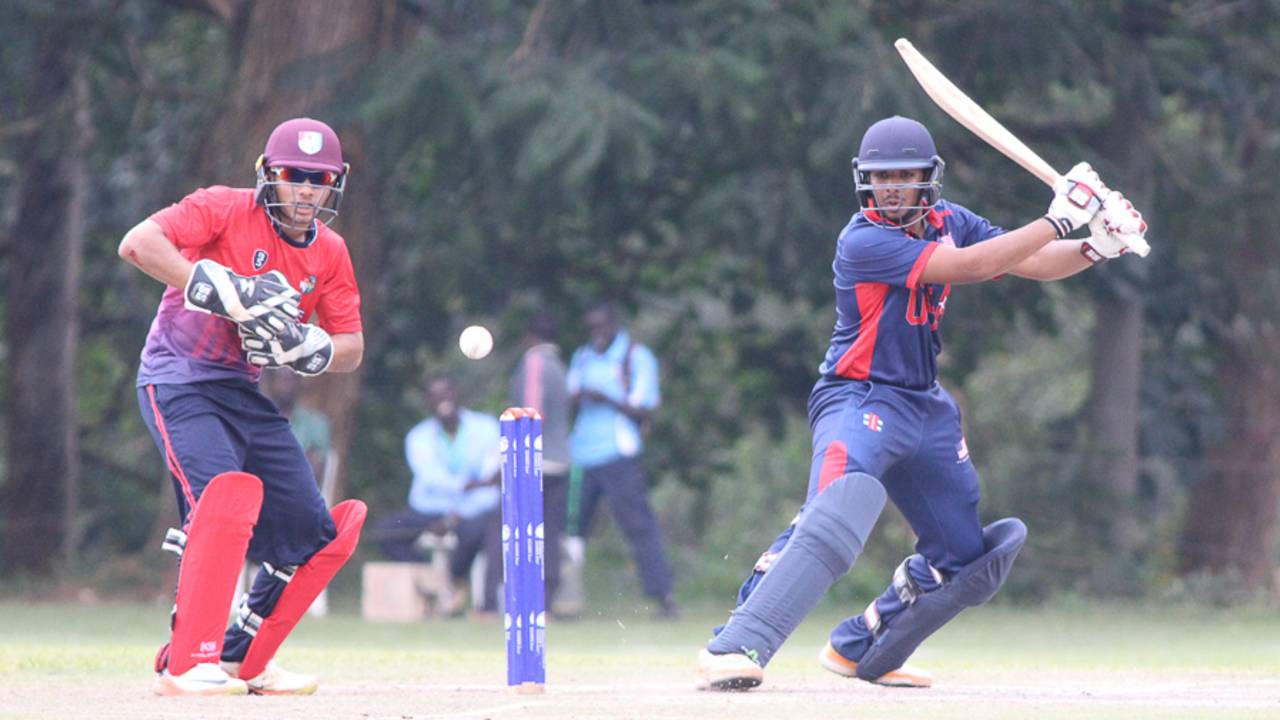ICC rejected USACA plea ahead of AGM
USACA claims the shift in ICC's voting structure in 2008 overly constrained their membership
Peter Della Penna
23-Jun-2017
Cricket in USA hit another roadblock • Peter Della Penna
The USA Cricket Association's plea for a stay on their expulsion by the ICC has fallen on deaf ears. USACA had issued a letter to all ICC member boards ahead of Thursday's ICC AGM in which they argued a yes vote on the resolution for expulsion would "set a dangerous precedent" and "leave the continued existence of all members, especially Associate and Affiliate members, at the mercy of the ICC." However, USACA was expelled by a unanimous vote.
The letter, dated Monday June 19, was signed by USACA executive secretary Sangar Renganathan. The letter blames the ICC for USACA's historic governance problems, claiming that the global governing body had input on the USACA constitution adopted in 2008, one they have currently been seeking to replace.
USACA claimed the shift in the voting structure in 2008 - where voting was streamlined to allow only member leagues and not clubs to have votes in general elections - "overly constrained their membership and left smaller groups and leagues without sufficient reason to join them."
Renganathan criticized the ICC for underfunding USACA and other Associates. He claimed the ICC set aside a $2.4 million budget for "Project USA", the caretaker ICC-run administration in Colorado overseeing USA cricket operations, to fund various national team activities for 2017.
USACA's claim is that the Project USA budget is an admission that the previous funding allotted to USACA prior to suspension - approximately $300,000-400,000 per year - was grossly insufficient for USACA to support cricket activities and exacerbated their current predicament.
On the administrative side, one of USACA's other main arguments in the letter is that leagues broke away from USACA in 2012 because they could not comply with the results of an ICC-mandated audit. However, the letter omits the fact that the exodus, which resulted in the formation of the rival American Cricket Federation, was sparked by USACA's incumbent board disenfranchising 32 out of 47 member leagues, many of which had publicly declared they intended to vote against the incumbents in the 2012 election. President Gladstone Dainty won that 2012 election in a landslide.
Renganathan also stated the USACA "relaxed our membership requirements" ahead of the 2015 general election won by Dainty. He said such a move was to alleviate complaints that arose after the 2012 election, and the relaxed requirements resulted in a series of new leagues getting the right to vote in 2015.
Accusations of ghost leagues, ostensibly with the paperwork to support approval and thus a right to vote in the election but which had no actual on-field operations, then surfaced. An ICC report logged these complaints and presented them to the ICC membership as evidence of poor governance, supporting the decision to slap USACA with another suspension.
The same ICC report stated that USACA did not represent the majority of cricket stakeholders in the country. The USACA letter from Monday states that regardless of not having the majority of stakeholders as members, USACA still claimed to be the governing body with the largest membership base and thus best placed to continue as the ICC's member governing body.
Despite accusations of financial impropriety, USACA claims that an ICC audit found no evidence. USACA also contends that expelling them will not solve the problems they feel the ICC has played a part in creating, while also arguing that members should be free to sort out their own issues domestically without ICC intervention, which they label "anti-democratic".
"There is no escaping the conclusion that a vote to expel USACA is vote against cooperation, free elections and self-governance," Renganathan says. "A vote to expel USACA does not solve a problem that the ICC claims exists. It does not make those whom the ICC does not like disappear. Rather, it creates a much larger problem because it says to the ICC: 'there is no limit to the control that the ICC can exercise over an individual member.' That is the wrong message for any member to send to the ICC."
Peter Della Penna is ESPNcricinfo's USA correspondent. @PeterDellaPenna
